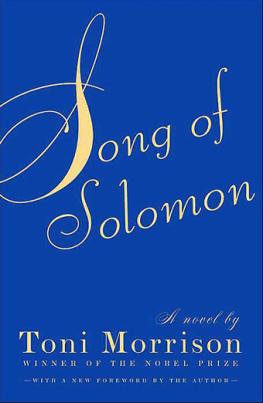
In accordance with the U.S. Copyright Act of 1976, the scanning, uploading, and electronic sharing of any part of this book without the permission of the publisher is unlawful piracy and theft of the authors intellectual property. If you would like to use material from the book (other than for review purposes), prior written permission must be obtained by contacting the publisher at permissions@hbgusa.com. Thank you for your support of the authors rights.
Copyright 2012 by David Jeremiah
All rights reserved. In accordance with the U.S. Copyright Act of 1976, the scanning, uploading, and electronic sharing of any part of this book without the permission of the publisher is unlawful piracy and theft of the authors intellectual property. If you would like to use material from the book (other than for review purposes), prior written permission must be obtained by contacting the publisher at permissions@hbgusa.com. Thank you for your support of the authors rights.
The author is represented by Yates & Yates, Attorneys & Literary Agents.
Editorial and Design Services:
Mark Gilroy Creative, LLC with ThinkPen Design, Inc.
www.markgilroy.com
www.thinkpendesign.com
Special thanks to Rob Suggs and William Kruidenier
Unless otherwise indicated, Scripture verses quoted are from The Holy Bible, New King James Version, copyright 1982 by Thomas Nelson, Inc.
Scripture verses marked KJV are taken from The Holy Bible, King James Version.
Scripture verses marked NIV are taken from the Holy Bible, New International Version. NIV. Copyright 1973, 1978, 1984 by International Bible Society. Used by permission of Zondervan Publishing House. All rights reserved.
Scripture quotations from THE MESSAGE. Copyright by Eugene H. Peterson 1993, 1994, 1995, 1996, 2000, 2001, 2002. Used by permission of NavPress Publishing Group.
Scripture quotations taken from the New American Standard Bible, Copyright 1960, 1962, 1963, 1968, 1971, 1972, 1973, 1975, 1977, 1995 by The Lockman Foundation. Used by permission. (www.Lockman.org)
Scripture quotations marked NLT are taken from the Holy Bible, New Living Translation, copyright 1996, 2004. Used by permission of Tyndale House Publishers, Inc., Wheaton, Illinois 60189. All rights reserved.
Scripture quotations are from The Holy Bible, English Standard Version (ESV), copyright 2001 by Crossway, a publishing ministry of Good News Publishers. Used by permission. All rights reserved.
FaithWords
Hachette Book Group
237 Park Avenue, New York, NY 10017
www.hachettebookgroup.com
www.twitter.com/faithwords
First e-book edition: April 2012
FaithWords is a division of Hachette Book Group, Inc.
The FaithWords name and logo are trademarks of Hachette Book Group, Inc.
The publisher is not responsible for websites (or their content) that are not owned by the publisher.
The Hachette Speakers Bureau provides a wide range of authors for speaking events. To find out more, go to www.hachettespeakersbureau.com or call (866) 376-6591.
ISBN 978-1-4555-1143-3
W hile it seems no subject is off-limits in public conversation today, not that many years ago there were boundaries. Sex, religion, and politics were the big three that were reserved for private discussionsbut not always for the right reasons. The Bible doesnt shy away from any topic that is common to human experience and neither should we. The difference between the Bible and our cultural communication is one word: context. The Bible puts every topic in its appropriate context, providing reasons and results from Gods perspective.
Can you remember the first time you discovered there was sex in the Bible? More than one young or new Christian has been shocked while perusing the pages of the Old Testament book called Song of Solomon. It says next to nothing about God and seems way too racy to be included in a book about Him. And that shock points out a problem: Weve allowed the world to hijack something beautiful and God-given and to turn it into something tawdry. In our reaction to what the world has done with sex and love, we have forgotten a biblical truth: Sex and passionate, romantic love are Gods ideas! And in the right setting (theres the context thing), romantic love between a husband and wife is highly charged, amazingly beautiful, and unapologetically physical.
In todays world, you or I might be embarrassed to have a love story like Solomonsif we had written it about our own love life and broadcast it to the whole world in the Bible. But Solomon wasnt. Theres not a thing in the Song of Solomon to be ashamed of. Indeed, you and I can learn a lot about human love and passion from the young king who not only knew how to romance his beloved but how to write about it as well.
Thats why I love the Bible. It doesnt dress up for us; it wears the truth just the way we experience it in life. It deals with those topics were afraid to talk about in public or put into prayer requests. I am so thankful that the Holy Spirit inspired the Bible rather than somebodys proper old great-great-great aunt who lived in Victorian England, as fine a soul as that great aunt might have been. If you or I had written the Bible, we might have taken great pains to make its characters look prim and properinstead of human. The Bible pulls back the curtain in every area of life, whether sinful or graceful, and sets the stage for Gods grace to come in and sanctify the act or correct it. And in Song of Solomon, we get the God-blessed record of marital love in all its glory. Im glad the Bible is the original no-spin zone.
The fact is that people were created as sexual beings, and the Bible reveals that truth frankly. Throughout the Scriptures we are reminded that male and female He created them (Genesis 1:27). And in this short prose poem by Solomon, we get our most extended, gracious, and elegant discourse on how God views love, marriage, and sex between husband and wife.
LOST IN TRANSLATION
There are many common misconceptions about the biblical view of sex, love, and marriage. What God has wanted us to understand from the beginning is profoundly, breathtakingly beautiful. It was the apostle Paul, in the New Testament, who clearly delineated the relationship between earthly love and heavenly love. In Ephesians 5:22-23, he demonstrated that the bond between husband and wife is an earthly picture of a heavenly reality: the bond between Christ and His church. The husband is to love his wife as Christ loves His bride, the church. Can you imagine how lovely our marriages would be if every husband sought to love his wife as Christ loves His church? Can you imagine what a passionate, lovely place the church would be if we brought to it the devotion of a young married couple deeply committed to one another?
Marital love, then, is inherently spiritual, just as true Christian fellowship (and marriage is the pinnacle of Christian fellowship) is intensely passionate and committed. This book is based on Solomons love poem to his betrothed. Therefore, it is about love, sex, and marriagelovely gifts of God that bless us and glorify Him.
In teaching the Bible, we should try to say what God says without apology. But too often, as culture and tradition press their dictates upon us, we lose Gods voice; we tone down or ramp up His words. For instance, the early church leaders took Pauls teaching about marriage from Ephesians to heart. They enshrined marriage as a spiritual sacrament that ennobles sexual intimacy between husband and wife, particularly for purposes of procreation. But during the later Protestant Reformation (sixteenth-century Europe) church leaders lost or misplaced the idea of marriage as a holy sacramentthough they saw its value for the procreation of families and as a hedge against immorality.




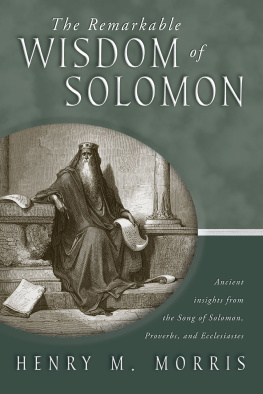

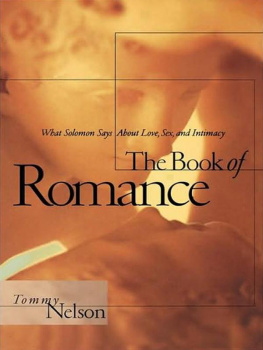
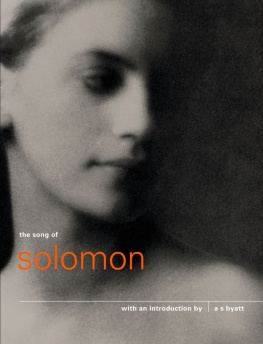


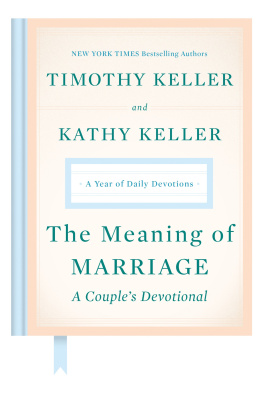
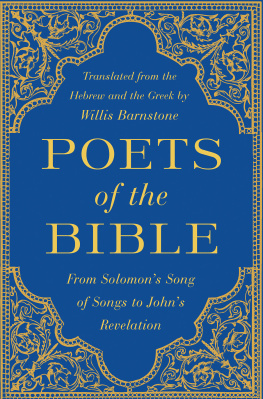
![Othmar Keel - The Song of Songs [Song of Solomon]](/uploads/posts/book/82605/thumbs/othmar-keel-the-song-of-songs-song-of-solomon.jpg)
